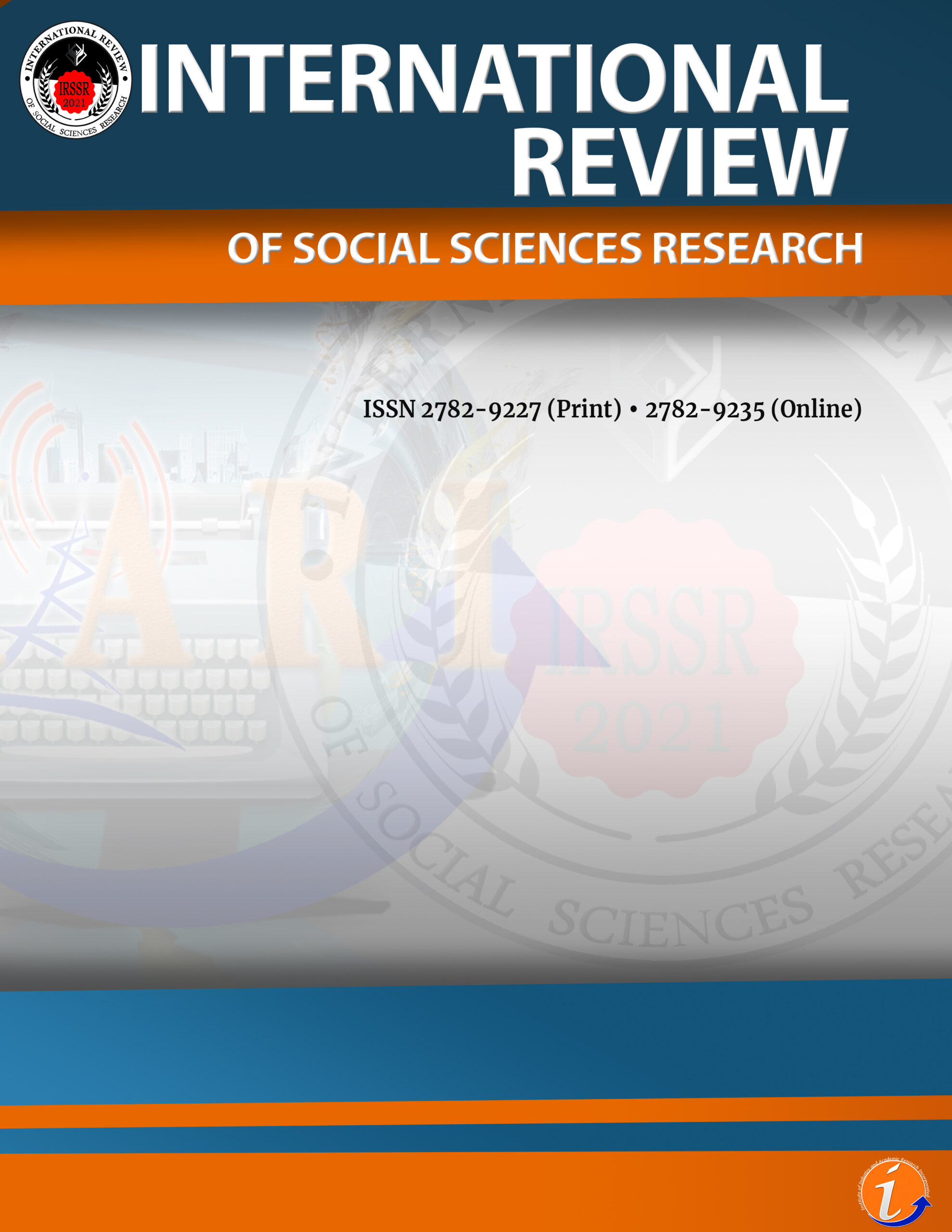There is a critical need for comprehensive governance reform in Sudan, a nation navigating the turbulent shift from decades of authoritarian rule to a fragile post-conflict democracy. Through an in-depth analysis, the study examines Sudan's enduring governance challenges—corruption, ethnic tensions, and economic mismanagement—while highlighting the unique opportunities for structural reforms, such as constitutional reconfiguration, decentralization, anti-corruption initiatives, and strengthened regional collaboration. Drawing on secondary data from academic research, policy reports, and analyses by international organizations, the study underscores the transformative potential of Sudan’s key stakeholders, including government institutions, civil society, international allies, and regional neighbors. Findings reveal that their collective involvement is vital to establishing a foundation for long-term peace and stability. This article concludes with actionable recommendations aimed at fostering a governance system that is transparent, inclusive, and accountable—an aspiration that hinges on the sustained engagement and collaboration of these pivotal actors in Sudan's journey toward a democratic future.
governance reform, challenges, opportunities, Sudan
Fawzi Ahmed Abdullah Slom. Pan African University, Institute of Governance, Humanities and Social Sciences, Governance and Regional Integration. Email: fawziahmedslom@gmail.com
No potential conflict of interest was reported by the author(s).
This work was not supported by any funding.
Not applicable.
Aalen, L. (2011). The politics of ethnicity in Ethiopia: Actors, power, and mobilization under ethnic federalism. Brill Academic Publishers.
Ahmed, H. O. (2019). Sudan’s revolution and the struggle for civilian rule. African Affairs, 119(475), 85–99. https://doi.org/10.1093/afraf/ady086
Al Jazeera. (2023). Sudan conflict: Major humanitarian crisis amid fighting. https://www.aljazeera.com
Al-Affendi, A. (2009). The political economy of the Sudanese revolution: Governance challenges and economic policy. Sudan Studies Center.
Ali, A. A. (2015). Challenges of democratic transition in Sudan: A historical perspective. Sudanese Journal of Political Studies, 12(3), 23-45.
Andrews, M. (2013). The limits of institutional reform in development: Changing rules for realistic solutions. Cambridge University Press.
Collins, R. O. (2008). A history of modern Sudan. Cambridge University Press.
Daly, M. W. (1991). Imperial Sudan: The Anglo-Egyptian condominium, 1934-1956. Cambridge University Press. https://www.cambridge.org/core/books/imperial-sudan/9D5FBCE36007D59B30233F251FFBDA18
De Waal, A. (2015). The real politics of the Horn of Africa: Money, war, and the business of power. Polity Press.
De Waal, A. (2007). Sudan: The turbulent state. African Affairs, 106(422), 91-105. https://doi.org/10.1093/afraf/adl028
El-Battahani, A. (2019). The rise and fall of the Islamist state in Sudan. Third World Quarterly, 40(3), 423–440. https://doi.org/10.1080/01436597.2018.1540164
Elhadi, M. (2023). The Sudanese civil war: A deepening crisis. Conflict Studies Quarterly, 29(1), 63–81.
El-Mahdi, R. (2010). Sudan’s political transition and the struggle for democracy. African Affairs, 109(436), 477-497. https://doi.org/10.1093/afraf/adv120
Elsheikh, N. (2020). Women and the revolution in Sudan: Struggles for gender equality. African Affairs, 119(476), 173–182. https://doi.org/10.1093/afraf/adz058
Gallopin, J. B. (2020). The Sudanese revolution and the Sudanese Professionals Association. Middle East Report, 49(2), 21–24. https://www.merip.org/2020/02/the-sudanese-revolution-and-the-sudanese-professionals-association/
Human Rights Watch. (2021). Sudan: Military coup a severe blow to human rights. https://www.hrw.org
Human, L., et al. (2021). The Sudan coup and its implications for democratic governance. International Policy Review, 34(1), 15-27.
International Crisis Group. (2019). Safeguarding Sudan’s revolution. https://www.crisisgroup.org
International Crisis Group. (2020). Sudan’s transition: The challenges of corruption. ICG Reports. https://www.crisisgroup.org/africa/horn-africa/sudan/303-sudans-transition-challenges-corruption
International Crisis Group. (2021). Sudan’s fragile transition: A need for international support. https://www.crisisgroup.org/africa/sudan/sudans-fragile-transition
International Crisis Group. (2023). Restoring stability in Sudan: Strategies for conflict resolution. https://www.crisisgroup.org/africa/sudan/stability-strategies
International Crisis Group. (2023). Sudan’s crisis: A path to recovery through governance reform. ICG Reports. https://www.crisisgroup.org/africa/horn-africa/sudan/310-sudans-crisis-path-recovery-through-governance-reform
Johnson, D. H. (2003). The root causes of Sudan’s civil wars. Indiana University Press. March, J. G., & Olsen, J. P. (1984). The new institutionalism: Organizational factors in political life. American Political Science Review, 78(3), 734-749. https://doi.org/10.2307/1961840
Johnson, D. H. (2011). The root causes of Sudan’s civil wars: Peace or truce? James Currey. https://www.jamescurrey.co.uk/the-root-causes-of-sudans-civil-wars
Khalil, F. (2022). The coup of 2021 and its implications on Sudanese governance. Journal of African Politics, 45(2), 92–112.
Mulugeta, K. (2017). The role of regional organizations in conflict resolution in the Horn of Africa. Journal of Peace and Security Studies, 5(2), 45–67.
North, D., Wallis, J., & Weingast, B. (2009). Violence and social orders: A conceptual framework for interpreting recorded human history. Cambridge University Press.
OCHA. (2023). Humanitarian needs in Sudan: A crisis overview. United Nations Office for the Coordination of Humanitarian Affairs. https://www.unocha.org/sudan-crisis-overview
Pemunta, N. V., Ngo, N. V., Fani Djomo, C. R., Mutola, S., Seember, J. A., Mbong, G. A., & Forkim, E. A. (2021). The Grand Ethiopian Renaissance Dam, Egyptian National Security, and human and food security in the Nile River Basin. Cogent Social Sciences, 7(1). https://doi.org/10.1080/23311886.2021.1875598
Sudan Tribune. (2023). Constitutional reforms in Sudan: Challenges and opportunities. Sudan Tribune. https://www.sudantribune.com/constitution-reforms
Sudan Update. (2023). Current political and economic situation in Sudan. https://www.sudanupdate.com
Transparency International (2020). Corruption Perceptions Index 2020: Sudan. https://www.transparency.org/en/cpi/2020/index/sdn
Transparency International (2020). Corruption Perceptions Index 2020: Sudan. Transparency International. https://www.transparency.org/en/cpi/2020/index/sdn
Transparency International. (2023). Corruption Perceptions Index 2023: Sudan. Transparency International Annual Report. https://www.transparency.org/en/cpi/sudan-2023
UNDP. (2022). Supporting Sudan’s democratic transition: A development perspective. United Nations Development Programme. https://www.undp.org/sudan/democratic-transition
UNDP. (2023). Decentralizing governance in Sudan: Pathways for reform. United Nations Development Programme. https://www.undp.org/sudan/governance-reforms
United Nations. (2023). UN calls for immediate ceasefire and humanitarian aid in Sudan. https://www.un.org/sudan-ceasefire-aid
UNODC. (2023). Building anti-corruption institutions in post-conflict states: The case of Sudan. United Nations Office on Drugs and Crime. https://www.unodc.org/sudan-anti-corruption
World Bank. (2022). Decentralized governance for economic stability: Lessons for Sudan. https://www.worldbank.org/sudan-decentralized-governance
World Bank. (2022). Sudan economic monitor: Navigating through turbulent waters. https://www.worldbank.org/en/country/sudan/publication/sudan-economic-monitor
World Bank. (2023). Sudan economic update. https://www.worldbank.org
World Bank. (2023). Sudan’s path to economic recovery: Opportunities and challenges. https://www.worldbank.org/sudan-economic-recovery
Cite this article:
Slom, F.A.A. (2024). Navigating the crossroads: Challenges and opportunities for governance reform in Sudan. International Review of Social Sciences Research, 4(4), 171-191. https://doi.org/10.53378/irssr.353138
License:
![]()
This work is licensed under a Creative Commons Attribution (CC BY 4.0) International License.










